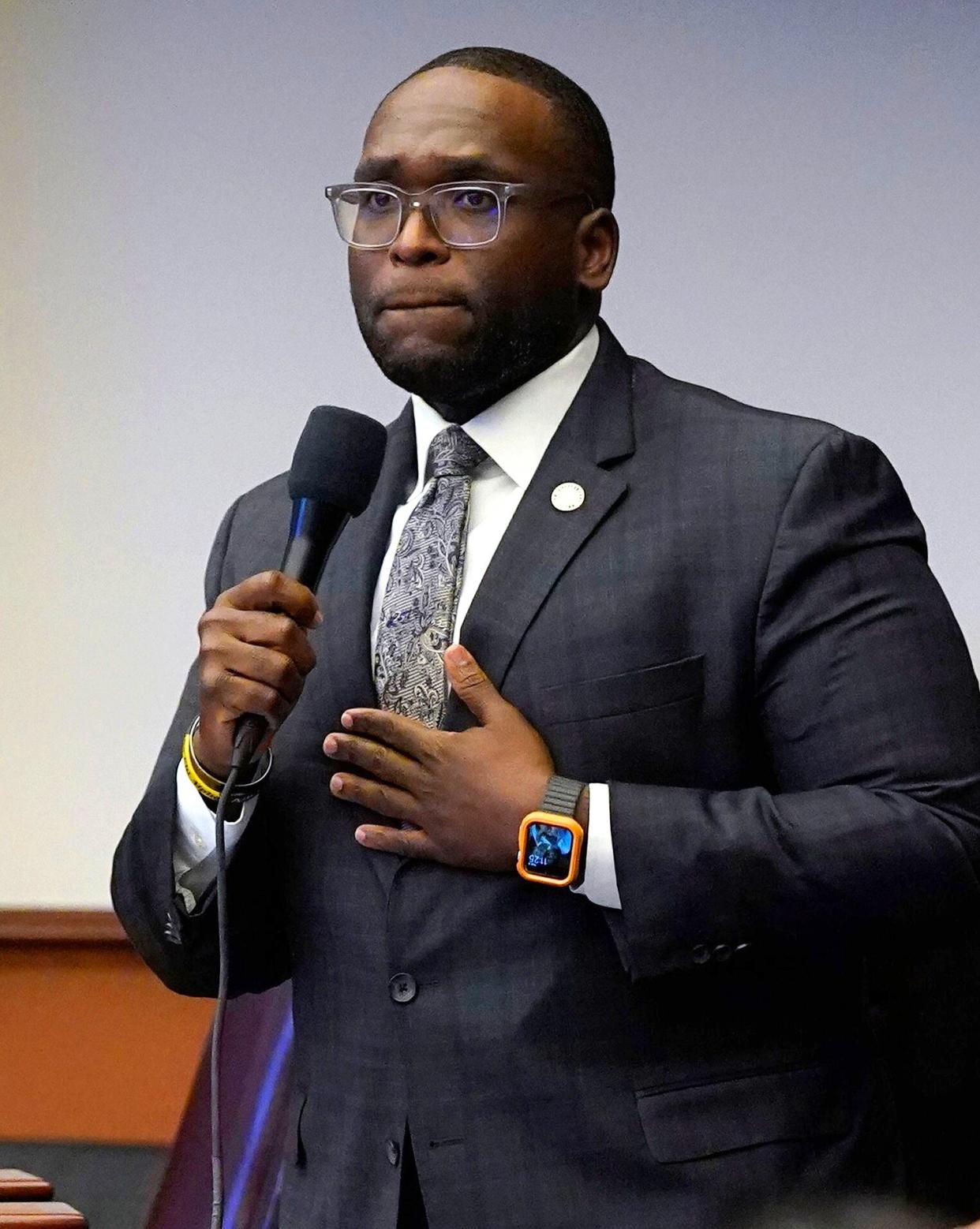Florida's First Openly Gay State Senator Speaks Out on 'Don't Say Gay' Bill

Wilfredo Lee/AP/Shutterstock Sen. Shevrin Jones
A gay Florida lawmaker spoke out last week ahead of the passage of the state's controversial Parental Rights in Education bill — denounced as "Don't Say Gay" by LGBTQ activists — offering a personal take on how it might affect students.
Democrat Shevrin Jones is Florida's first openly gay state senator. On March 7, he spoke to his colleagues about his own coming out, in 2018, when he was 34.
"I never knew that living my truth would cause church members to leave my dad's church — or friends to stop talking to me or families to make jokes about who you are," Jones, now 38, said, referencing to his father, who is a pastor in South Florida.
Jones grew especially emotional when speaking about a book written by his dad and published just weeks ago, in which his father expressed "disappointment" at learning that he was gay.
"After taking 30 years of just wanting to make him and my mom proud. And just coming out, just saying who I am," Jones said.
He continued: "So when I see these kids — I don't think y'all understand how much courage it takes to show up every day. Imagine living your life for 30 years and you coming to your parents and you talk about who you are. And you're lying to them about who you are."
RELATED: Chasten Buttigieg Denounces Proposed Ban on LGBTQ Discussions in Fla. Schools: 'This Will Kill Kids'
Jones's speech came in response to the controversial proposal that would ban Florida teachers from talking to students in kindergarten through third grade "about sexual orientation or gender identity."
More broadly, the text of the bill forbids discussing those topics in class "in a manner that is not age appropriate or developmentally appropriate for students in accordance with state standards" — a vague restriction, advocates say, that will silence LGBTQ students.
The bill also requires schools to respond to any parental concerns within seven calendar days, and resolve them within 30 days. Parents who feel the issues have not been resolved are, as stipulated in the bill, then able sue the school district or request the state commissioner of education "appoint a special magistrate" (paid for by the school district) to mediate a solution.
In his speech last week, Jones urged his fellow lawmakers to alter the bill's language so that it would limit any attempts by teachers or schools to change a student's gender identity or orientation, rather than just banning the discussion of it altogether.
The amendment failed, garnering just one Republican vote.
Speaking to the other state lawmakers, Jones said, "In my heart, I don't believe any of you in here, my colleagues — many of whom I've known for years — I believe that we all want to do right."
He continued: "But it seems as if politics ... we have gone down a road where we're scared to just step out and make sure we're not hurting people."
Despite the backlash, the bill passed the state's Republican-led legislature and is poised to be signed into law by Florida Gov. Ron DeSantis, who has said he supports the measure.
"The air was taken out of the room, as it should have been," Jones said after the vote.
Advocacy group Equality Florida has said that the bill "demonizes the LGBTQ community" and warned that if the "language [is] interpreted in any way that causes harm to a single child, teacher, or family, we will lead legal action against the State of Florida to challenge this bigoted legislation."
Republicans who support the bill say it is needed to avoid "sexual instruction" in the classroom — though some, including DeSantis, have suggested it will also alleviate a so-called "focus on transgenderism."
"I think clearly right now, we see a focus on transgenderism, telling kids they may be able to pick genders and all of that," DeSantis, 43, said recently.
As The Miami Herald reports, sexual orientation and gender identity are not currently taught in kindergarten through third grade in Florida.

